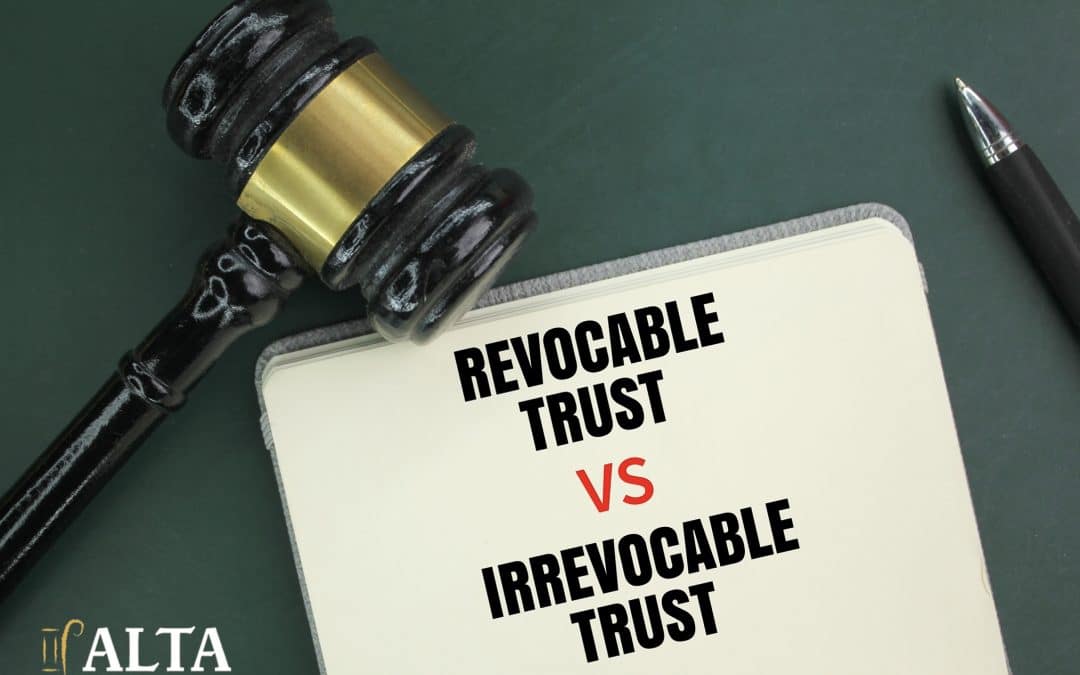A revocable trust offers flexibility and privacy and helps bypass probate. However, not every asset belongs in one. Some transfers trigger taxes, legal complications, or unnecessary steps, such as additional paperwork or delays in accessing funds. Mark Fishbein, lead estate planner at ALTA Estate Services, highlights the risks of placing the wrong assets in a trust.
Estate planning protects what you have by correctly positioning assets to maximize benefits and minimize risks. Here’s what to avoid placing in a revocable trust.
- Retirement Accounts (401(k), IRA, 403(b))
Placing a retirement account into a trust causes a taxable event, a transaction that triggers a tax liability. The IRS treats the transfer as a complete withdrawal, triggering immediate income tax and, if under 59½, early withdrawal penalties.
Instead, you have the option of naming the trust as a beneficiary. This method preserves the account’s tax-deferred growth while still protecting heirs.
- Health Savings Accounts (HSA) and Flexible Spending Accounts (FSA)
HSAs and FSAs are tied to your Social Security number. A trust cannot legally own them. Attempting to transfer ownership triggers a taxable event.
You have the option of designating a beneficiary for these accounts, ensuring any remaining balance passes smoothly to heirs.
- Life Insurance Policies (Sometimes)
Owning a life insurance policy inside a revocable trust risks pulling the death benefit into your taxable estate, creating an unexpected estate tax liability.
If estate taxes are a concern, use an Irrevocable Life Insurance Trust (ILIT) instead. An ILIT keeps the policy out of the taxable estate, preserving the full benefit for beneficiaries.
- Vehicles and Boats (Unless High-Value)
Transferring vehicles or boats to a trust is usually unnecessary and can create insurance complications. Most vehicles pass easily through simple DMV processes after death.
However, collectible or highly valuable vehicles may belong in a trust for asset protection. ALTA Estate recommends handling the paperwork carefully to avoid insurance lapses in those cases.
- U.S. Savings Bonds
Transferring savings bonds to a trust requires complicated re-registration with the U.S. Treasury. The easier option is to name a payable-on-death (POD) beneficiary. This simple step ensures the bonds pass directly to heirs without probate or bureaucratic delays.
- Certain Bank Accounts (IRA CDs, Joint Accounts)
Not all bank accounts benefit from trust placement. Moving a CD inside an IRA into a trust could trigger early withdrawal penalties. Similarly, transferring joint accounts complicates ownership rights.
Instead, you can use payable-on-death (POD) or transfer-on-death (TOD) designations. These mechanisms allow accounts to pass directly to designated beneficiaries without legal entanglements.
- Annuities with Named Beneficiaries
Annuities grow tax-deferred, and placing them in a trust can remove some tax advantages. Trust ownership could also complicate payout structures.
You may decide to name individual beneficiaries and, if necessary, listing the trust as a contingent beneficiary. This preserves the annuity’s intended benefits without adding tax exposure.
- Business Interests (In Some Cases)
Placing business ownership into a revocable trust needs careful review. Many LLC or partnership agreements restrict ownership transfers without consent, risking a breach of contract.
Business owners should work with an experienced estate planner. This approach ensures proper succession planning that aligns with the business’s operating.
- Real Estate Located in Certain States
Real estate often fits nicely inside a trust, but not always. Some states impose high transfer taxes or create additional refinancing hurdles when property titles transfer to trusts.
ALTA Estate recommends working with an experienced estate planner if you own property in multiple states. Creating separate trusts or LLCs for out-of-state property sometimes results in a more efficient plan.
Key Points to Remember:
- Never place retirement accounts directly into a revocable trust; use beneficiary designations.
- Avoid transferring HSAs, FSAs, or certain annuities into a trust.
- Consider ILITs for life insurance to avoid estate tax consequences.
- Handle vehicles and boats outside the trust unless they are high-value or collectible.
- Use POD or TOD designations for bank accounts and U.S. Savings Bonds.
- Consult an experienced estate planner before transferring any asset, but specifically business interests or real estate held across multiple states.
At ALTA Estate Services, we customize estate plans to maximize asset protection and minimize risks. Consulting an experienced planner ensures every decision aligns with your long-term financial and family goals.
Call your Estate Planning Attorney at (520) 797-1400 to learn more about Family Trust, Living Trust Preparation, and Asset Protection, including the Emergency Telephone Hotline Program afforded to you and your family members at no charge during times of crisis, and the other benefits of estate planning described above. Follow Mark Fishbein, Arizona Estate Planner , on LinkedIn or Facebook.
The text above is for general informational purposes and should not be considered legal advice. For more information, click Contact Us.

